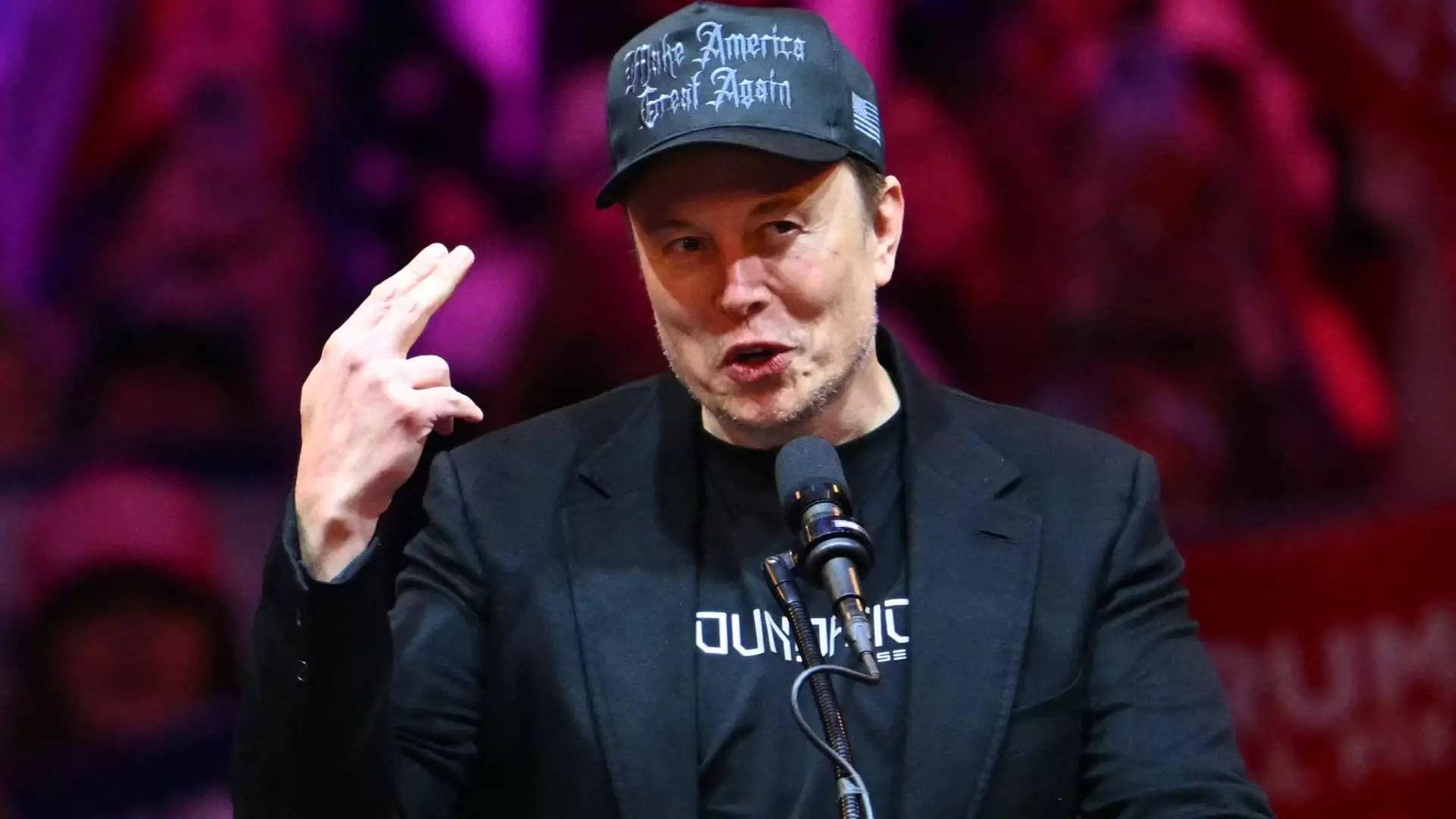With the 2024 presidential race gaining momentum, the economic policies of former President Donald Trump once again occupy center stage. His proposals have drawn attention not only from political analysts but also from influential business figures, such as Tesla’s CEO Elon Musk. Recently, Musk and other Trump allies have openly agreed with economists predicting that Trump’s economic strategies could escalate consumer prices, sparking a significant debate on the implications of such policies. The underlying question revolves around whether the sacrifices made by consumers in the short term would yield substantial benefits in the long run.
As Trump pitches his economic plan, which includes broad tariffs on imports—including hefty levies on Chinese goods—critics have raised alarm bells. Economists argue that implementing universal tariffs could lead to a spike in consumer prices, effectively acting like a “sales tax.” Musk echoed this sentiment by engaging with a social media post that warned of a potential “severe overreaction in the economy.” Such reactions from prominent figures only intensify scrutiny of Trump’s fiscal agenda.
While the arguments against these tariffs are compelling, Trump’s supporters seem to view the potential rise in prices as a necessary evil. Many suggest that although consumer prices may rise initially, the greater objective of promoting domestic industry and protecting American jobs should outweigh these costs. For instance, Howard Lutnick, CEO of Cantor Fitzgerald and a member of Trump’s transition team, admitted that enacting these tariffs would indeed escalate costs for consumers. However, he argued that increased prices on imports could also push consumers toward domestic alternatives.
Trump’s allies are not shy about acknowledging the immediate effects of his policies. For instance, Senator JD Vance, Trump’s running mate, stated that while tariffs might initially cause pain to consumers due to price hikes, the potential for higher wages would balance this burden. “Anything that you lose on the tariff from the perspective of the consumer, you gain in higher wages, so you’re ultimately much better off,” Vance asserted, attempting to frame the situation as a trade-off between short-term inconvenience and long-term stability.
This line of reasoning, however, raises critical questions—namely, how reliable are the promised gains in wages and domestic production? The notion that consumers can simply pivot to purchasing domestically manufactured products often overlooks the reality of the current U.S. market, where many goods are either not produced domestically in sufficient quantities or not produced at all. This problem could leave consumers with limited choices while facing higher prices, effectively nullifying the intended benefits of Trump’s tariffs.
Vice President Kamala Harris has seized on the criticisms of Trump’s economic framework to highlight the risks inherent in his proposed policies. By dubbing Trump’s tariffs a “Trump sales tax,” she underscores the potential burden that could fall on consumers. Harris’ emphasis on the immediate negative consequences creates an effective counter-narrative against the Trump campaign’s promotional rhetoric surrounding long-term economic benefits.
The discourse around Trump’s economic policies often reveals a schism in how Americans perceive the relationship between short-term sacrifices and long-term gains. Will consumers really experience substantial wage increases that offset rising prices? Are the proposed economic strategies sustainable and beneficial in the context of broader global economic trends?
Leadership figures within Trump’s circle, such as senior advisor Brian Hughes, have adopted a strategy of downplaying immediate consumer pain in favor of promoting the broader agenda. “The only pain facing Americans would be four more years of Kamala’s failed economic policies,” he stated, suggesting that a continuation of Democrats’ policies would be even more detrimental than Trump’s economic plans.
As Trump’s campaign ramps up, the discussions about the viability of his economic policies will undoubtedly intensify. While acknowledging the immediate repercussions of his proposals is essential, it is equally critical to scrutinize the long-term promises of prosperity they carry. Ultimately, as voters navigate the complexities of this economic landscape, they must consider whether investing in short-term pain is a gamble worth taking for a potentially brighter economic future. As opinions diverge and skepticism grows, the dialogue surrounding Trump’s economic blueprint will certainly shape the political landscape heading into the 2024 election.


Leave a Reply